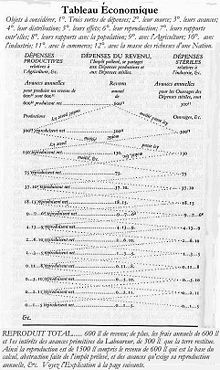What better counterpart to a decade where the rich won (2020s) and quantitative easting (short QE) seems to rule them all than to watch a documentary on how it all began. And also to understand what bugged free market libertarians like Milton Friedman’s than to watch the documentary that ‘triggered’ his response. Today we speak of ‘triggering’ in terms of what right wing is good at (Fox News etc) – and how easy it is to push their critics into ridiculous postures and very predictable behaviors, basically in what became a Pavlovian show. Who is going to make his opponent react in a knee-jerk way? And even better, who will make the other adopt one’s own tactics and meme first?
Well, before all that, we can place these two documentary series. Both very personal, with two key players. Big influencers supr in terms of statal policies and ideas. Do not get me wrong, these documentaries are about one of the most hated subjects around: economics (prove eme wrong!). Who does not hate the history of economics or the principal ideas deriving from that? A majority seems to suffer and endure under economicsl hardships even if money amd investment or financial system seem tok haunt us. What os a recession, what causes it, what are the class politics behind austerity measures? Who gets tok pay for inflation?
Maybe this will also answer some of the curiosities and questions regarding the 1970s when the great Golden Age of Capitalism in the West came to an end after a series of shocks. Several counter-measures culminating with the switch from liberal democracies where Big Government Keynesianism (both left or later on right-wing brands of Keysianism) finally gave way to the Austro-libertarian school of Economics represented by Friedman and the Chicago boys. While some may feel emboldened to say that today in the midst of the polycrisis we have a Keynesian moment coming around and neoliberalism is on the wane, I would rather say (with Quinn Slobodian and others in mind) that neoliberalism has mutated itself in the time of decoupling, de-risking and ethnopolitics. Maybe it is capitalism as usual – an upside down world that cannot get the right side up and will only get more lopsided.
John Kenneth Galbraith (1908-2006) was perhaps one of the most interesting characters and appreciated social scientists of his time. There are echoes of Galbraith everywhere today, even in his admonishment of militaristic Keynesianism where the military-industrial-entertainment complex simplex in Washington begins to use all the levers of power to transform its Big Tech into a national asset amd industrial policy. Frmerly free-trade radicals feeding on nationalism start to recast themselves as anti-Chinese US stalwarts. All this is put into stark contrast by a new generation of Keynesian economists (Gabriela Gabor and Isabella Weber come to mind). Forgotten lessons seems valid again. To prevent inflation after WWII JK Galbraith was recommending strategic price controls (anathema to the free market radicals!)
John Kenneth Galbraith is a representative of classical liberalism that also enjoyed tremendous influence & honed his skills & experience being active at the center of the US establishment. He was active in Democratic Party politics, serving in the administrations of Franklin D. Roosevelt, Harry S. Truman, John F. Kennedy, and Lyndon B. Johnson. He also had relations to the Global South – being an ambassador to India (the biggest democracy on Earth) during the JFK administration. At the same time, he was red-baited by his opponents and considered by conservative think tanks the man who “made socialism mainstream“. So when he is saying that the powerful US Farmer lobby is still hailing back to the physiocrat thinkers in France, he knows what he is saying from direct experience. He pokes fun at everybody, especially at the privileged members of the ‘leisure class’. He does not miss an opportunity to constantly question the very thinkers he mentions according to their own principles or tax them when they employ theories or easy justifications in their own favor.
Yeah it looks oldskool and peak boomer in a way, at the same time all episode 1 The Prophets and Promise of Classical Capitalism is a tremendous effort to stage the history or economic ideas, the larger background, or the assumptionsof behind it all, including all the major thinkers. The stage is set by unsettling the stage – in a Brechtian manner, all the illusionist art, all the stagecraft, and the scaffolding of history is shown to be a BBC studio. He quotes John Maynard Keynes (Galbraith himself is regarded as a post-Keynesian) at the very beginning:
“The ideas of economists and political philosophers, both when they are right and when they are wrong are more powerful than is commonly understood. Indeed, the world is ruled by little else. Practical men, who believe themselves to be quite exempt from any intellectual influences, are usually slaves of some defunct economist.”
What can be blander than pretending to be free of any influence or any previous antecedent thinker or just acting according to practical reason, bootstrapping yourself? Then we risk like Kant’s dove to think that we can fly faster and more frictionless if we would prefer a vacuum instead. Yet this vacuum strikes back. Many intellectuals prefer to ignore schools of thought that have spawned the economics and politics that they prefer to think is the result of practical decisions & spontaneity. On the other end, you have professional economists being absolutely adamant that you have to stick with what works. They are eminently disinterested and ignorant of the history of their trade. Well, then maybe that is why we need historians of the economy.
Other than most Galbraith recovers those very fragments from the texts cherished economists that are not usually quoted or followed. This makes us see how fragmentary and prejudiced our reading of them is. The ideas and abstractions he visits are constantly pulled from their pedestal – with historical examples that seem to show the way they were misused. If he gets us to visit Adam Smith and the writing of the Wealth of Nations, at the same time notices that Smith in his self-interest and critique of tenured academics have also chosen private tutoring as a more profitable income over his university career. Eps 1 is a journey through the Scottish Enlightenment and Smith’s friendship with philosopher David Hume who woke Kant fromhis dogmatic slumber! Galbraith stops at French markets to talk about the theories of the French physiocrats or observe that not even Smith’s disdain could make us dismiss the Tableau économique of Quesnay sonde the input-output analysis later developed by Russian economist Wassily Leontieff (1905-1999) or the planned economy of the Soviet Union is a direct descendent of that very table. Principles such as laissez-faire and free trade are paraded, while the importance of the division of labor gets exemplified with the help of a pin-making process.

David Ricardo (1772 – 1823) advanced a Labor Theory of Value that was also going to have a long history ahead. In this climate of the British Empire, you had the first stirrings of the Industrial Revolution and the experiments in social responsibility at New Lanark cotton mills in Scotland established by industrialist David Dale. Capitalist charity (which was not charity at all), since children and women became the first recruits and disciplined workers of the new era, worked just 1h less than in the other mills. Socialist Utopian experiments in collective living such as New Harmony, Indiana established by Robert Owen also get mentioned – an episode that rests in my heart because of Marguerite Young’s magnificent literary rendition of that in An Angel in the Forest: A Fairy Tale of Two Utopias (1945).
Early eviction and land-grabbing in the name of ‘agricultural improvement’ also get staged under the Highlander Clearances, where Scottish tenants were pushed out of homes to make room for more profitable (and aesthetically pleasing) sheep. The Irish Famine – and its Malthusian instrumentalization by the British State, as well as the migratory working class trails across the Atlantic, are important references. For Galbraith, it is also an example of how easy it is to abstract from the misery of others and decide to ignore their plight when one life and calculates remotely at a safe distance from their troubles. Or ordering bombs to drop on unknown others from above. The Irish had to pay with their lives and with their wheat to the landlords while the Corn Laws blocked the import of cheap corn. The Hamlet of Marie Antoinette that somehow modeled pastoral life of the education of princely offspring also gets mentioned.
Eps 2 Manner and Morals of High Capitalism – makes pretty obvious how Social Darwinism became the secular religion of the rich industrialists and robber barons (today’s oligarchs and Big Tech billionaires) of the Gilded Age. Put simply Social Darwinists embraced both racism and laissez-faire capitalism. The survival of the fittest dogma fitted their own socially privileged positions and even if they were not biologists, they used a biological language and twisted Darwin’s idea of natural selection to position themselves as the finest and most adaptable representatives of the species. The popularity of Herbert Spencer in the US is proportionate with the amount of capital accumulation and ruthlessness of the American ruling class. Carnegie and Rockefeller become thus prime representatives of this ideological thinking. Galbraith presents a bizarre series of such US apostles of Darwinism that were sometimes even predecessors of the pro-capitalist Prosperity Gospel. One of them is laissez-faire advocate and clergyman William Graham Sumner. Galbraith also illustrates the thin line separating the capitalist from the criminal, the hoodlum and rascal in the 19th century by recounting in detail the Eerie War – a bloody conflict between US financiers to control the Eerie Railway Company in an effort to corner the market. This is not very far from the current crypto kings. Galbraith also remarks something interesting – that the poor have always been a preferred subject of sociological research, with investigators going to the slums to study their existence, mores and sexual life, while the rich have not attracted this selfsame attention at the time. That was to be the task of Thorstein Veblen -that did exactly some reverse safari on them, depicting the rich as no more than Big Man, and explaining their luxurious living and excess in terms that are still familiar to us today: conspicuous consumption (think Trump, think Berlusconi, space billionaires and basically every other fat cat). There’s one of the most sympathetic views of Marx and that chapter also makes it even more clear than the internecine wars of western liberalism would make neoliberalism or even current secessionist anarcho-capitalists completly at odds with what went on for much of the post war period in the western world. There’s a lot to be desired in the series perhaps none more than the chapter on colonialism – and the anti colonial, transatlantic slavery trade, and all the current struggles and long shadow of colonialism that still ontinues to this day.



